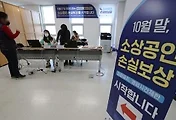The Ministry of Health and Welfare has revised the "2023 Senior Health and Welfare Program Guidelines" to expand effective welfare policies for the elderly. As a result, the age for eligibility for free meals for seniors has been lowered from 60 to 55, and the budget for cooling expenses at senior centers has also significantly increased. In addition, the per capita support for nursing homes is planned to increase by about 50% over the next five years.

Firstly, the government is expanding the eligibility criteria for free senior meals. Previously, it targeted seniors aged 60 and above who were at risk of malnutrition, but now it includes "low-income individuals aged 55 to 59 with a risk of malnutrition" as well. The Ministry of Health and Welfare stated that this has provided a flexible basis for supporting vulnerable groups who could be overlooked with uniform criteria.
The operating expenses for nursing facilities will also rise. The current support amount, set at 1.12 million KRW per person, will increase by an average of 8.8% annually over the next five years, aiming to bring it up to a level similar to that of childcare facilities. Currently, the per capita support for children in childcare facilities is 1.71 million KRW.
Furthermore, support for cooks in nursing facilities will be expanded. Starting from next year, for every 30 residents, an additional cook will be provided, and for facilities with over 100 residents, one more cook will be added. For example, a nursing facility with 90 residents, which previously had two cooks, will now have three.
Moreover, the cooling expenses for senior centers will increase by 43.4%, from an average of 115,000 KRW per month to 165,000 KRW. Any adjustments to winter heating costs will be discussed with relevant ministries before implementation.
The Senior Policy Officer at the Ministry of Health and Welfare expressed hopes that through this guideline revision, the difficulties faced in operating nursing facilities will be alleviated, and the living conditions of elderly individuals in local communities will be improved, providing a stronger foundation for protecting vulnerable seniors. It is expected that these policy changes will contribute to the welfare improvement of vulnerable elderly individuals.
'생활백서' 카테고리의 다른 글
| 입 안에 생기는 물집, 그 종류와 대처법. (75) | 2023.11.07 |
|---|---|
| "No Parole for Heinous Crimes: Can We Protect the People?" (16) | 2023.11.07 |
| Concerns Arise Over Morality and Confusion Regarding Stringent Repayment of Disaster Relief Funds. (22) | 2023.11.07 |
| 스트레스와 우울감을 해소하는 음악 듣기. (45) | 2023.11.06 |
| 나이가 들면 유독 등이 간지러워지는 이유와 예방법. (53) | 2023.11.06 |



